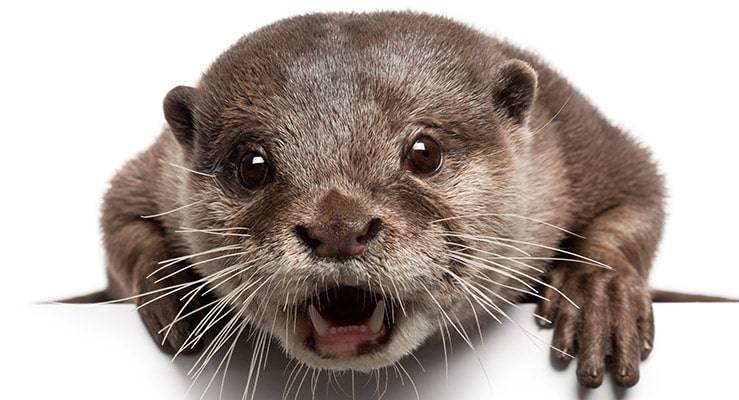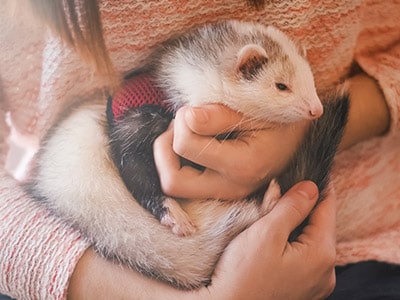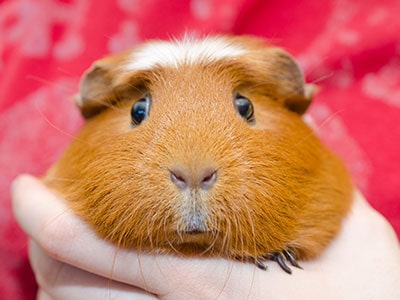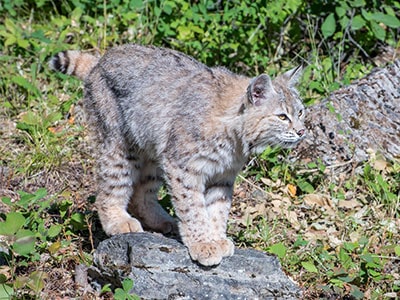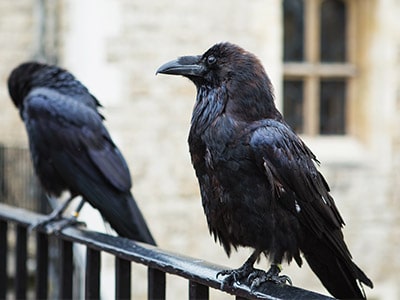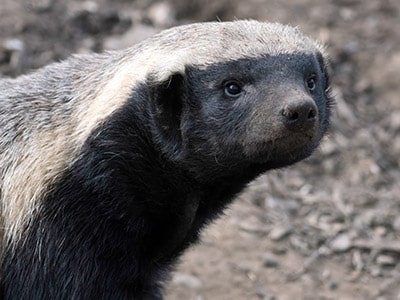Are you interested in knowing how are otters as pets? Read this post and find out more about otters and whether they make good family pets or not.
We all know how adorable otters can be. They look so adorable on TV shows, social networks, or at zoos, and many feel that they would love to have one as a pet. But do otters make good pets?
The short answer is no, otters do not make good pets. While they have an unbelievably adorable side, one should never house an otter.
Keep reading to find out why.
Before making arguments about why otters are not good pets, let's learn a few things about these creatures, where they are found, and how they behave in their natural habitat.
About Otters
Otters are a group of semi-aquatic mammals found in Europe, Asia, South America, and the far north of Africa. They belong to the family Mustelidae, order Carnivora.
Otter lives in various aquatic and semi-aquatic environments. We can find these animals in stagnant freshwaters such as ponds, lakes, and swamps, but also in flowing waters like rivers and streams. These animals can also live in the saltwater of oceans and seas but they also need a source of freshwater to clean their fur of salt.
Looks & Particularities
The otter is a relatively large mammal, with an elongated body covered with a very thick coat that keeps them warm in the water. There are several species of otters, and their size varies depending on the species. The largest specimens are giant otters (Pteroneura brasiliensis) that live in freshwater rivers in northern and central South America. Unfortunately, this species of otters are rare and endangered.
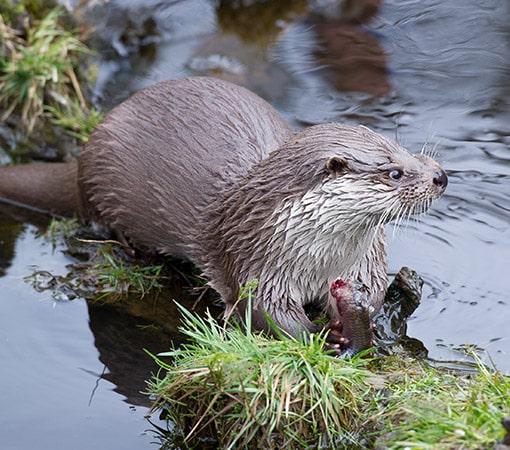
These semi-aquatic animals are perfectly adapted for swimming and diving in the water.
Otters have a hydrodynamic body shape with a tail that is thick at the base that thins towards the top, utilized in swimming and rudder. They also have a flattened head with small ears (which close when the otter sinks) and a thick neck.
The otter has four relatively short legs which are used for swimming, moving, fish handling, grooming, and digging. The fingers are connected by an interdigital membrane that helps with swimming.
Diet
Otters are carnivores and fierce predators. The diet of these mammals consists mainly of fish. However, in the absence of enough fish, they can also adapt and switch to additional food resources. For instance, otters can also eat crabs, some species of frogs, water snakes, sea birds, or other small mammals and reptiles that can find on the bank like snails, lizards, shells, insects. In rough conditions, they will consume even some types of plants.
Otters As Pets
Now that you know a few things about otters and how they live in the wild, it's time to find out what they are like as pets.
In recent years, interest in otters as pets has grown significantly. This is mainly due to social networks where people often post pictures and videos with these animals in captivity.
Where there's interest, there's always someone who is looking for profit. Consequently, the poaching of these mammals has grown alarmingly due to the fact that many are willing to give good amounts of money to own an otter as a pet. These animals are often abducted from their natural environment and sold on the black markets of exotic animals.
Not only is it immoral to put a free wild animal in a cage for your own fun, but at the same time, otters also have quite different requirements than owning a dog or a cat. Besides, otters are a protected species and it is illegal to keep one as a pet in many places.
Owning Otters May Be Illegal
It is true that not all countries have very well-developed legislation when it comes to keeping wild animals as pets. However, in many places, there are laws that prohibit the possession of exotic animals as pets without a special permit that is obtained only if you meet a number of particular criteria.
In most states in the United States, owning an otter is illegal. However, there are several states that allow otters as pets as long as a permit is obtained by the owner.
Otters Are Expensive And Rare
While there are so many animals that you can pick from that are standard, such as the dog or cat, or even ones that are slightly different, such as a skunk or ferret, many want pets that are creative or that hardly anyone else has.
If you truly want to own an otter, get ready to pay a lot! People are willing to pay thousands of dollars for an otter as this is considered an exotic pet. Many countries have banned the possession, capture, sale, and transport of these animals in an attempt to protect the species.
Otters Are Cute But Aggressive
We have all seen videos of otters that are cuddling with each other, kissing and hugging. Oh, how good would it feel to hold an otter and have them love on you like that? This thought is probably something that you will never experience if you own an otter for a pet.
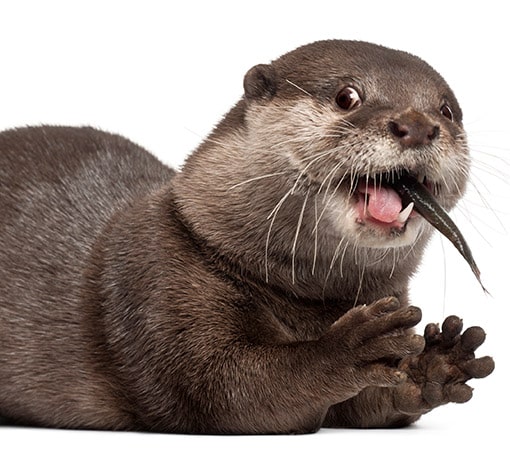
Despite their cute appearance, otters are hunters that possess strong predatory instincts. One of the main reasons you do not want to keep an otter for a pet is that no matter how cute they are when they are younger, they can grow up to be aggressive and territorial. They also have a tendency to be destructive to property, and if they do not get what they want, they can become hostile to humans or pets.
There are sellers of otters that will argue with this, stating that otters do indeed make great pets. These sellers will make claims that these animals are very much the same as a kitten, being playful in a home. This is simply not true at all. They may be like this at first, but over time, an otter is simply not going to be able to live in a home similar to a cat.
Otters Are High-Maintenance
Otters are very high-maintenance animals. Most pet owners do not fancy spending hours a day cleaning up after their pets, feeding them a special diet, or doing a multitude of things that other pets do not need.
When otters are kept as pets, it is hard to provide a diet like they have in the wild, which mostly consists of fish, invertebrates, crustaceans, crabs, and more. Therefore, feeding your otter this type of diet can get very expensive.
Even though otters take a meticulously grooming, they can present a musky smell and in closed environments, they can really stink. Their feces also have quite a powerful unpleasant smell due to their protein-rich diet. If you want an otter as a pet, you will have to clean its mess very often.
Otters also cannot be kept in a cage. This animal needs a vast space, plenty of water, and large amounts of fresh fish every day. It also requires everyday exercises to stay healthy.
Being A Pet Is Not Good For an Otter
If you love animals, then please do not keep otters as pets! An otter needs to have the life he was intended to have and need to be around their own kind in order to thrive.
Not to mention that an otter in a home life most likely is not going to get the water time he needs. They are semi-aquatic animals and spend a big part of their time in the water.
Many that are kept as pets will get a bath here or there or get to play in the tub for a short time each day. It is not nearly long enough though for it.
Most otters that are kept as pets are frequently stressed out, depressed, and suffer from anxiety. They are simply wild spirits and are not made to live their life in a cage, or in a small household. They love to swim, hunt, and just enjoy the freedom.
Otters are often not treated right either. Many otter owners will put them on a lease, dress them up in pet clothing, or stuff them in a backpack. No otter has ever dreamed of doing any of these things! Many of these otters spend most of their lives in cages, which do not mimic their natural surroundings at all.
Don't forget that otters need to live outdoors. So if you house an otter indoors, be ready for them to search your entire house up and down, looking for any forms of enrichment they can get their paws on. When they are done, your clothes, furniture, and other possessions may be destroyed.
Otters Are Noisy
Another downside of owning otters is that they can be very noisy.
Otters communicate through sounds and in their natural environment, they often produce loud sounds in various situations. The most specific is a characteristic whistling, an intermittent chirping, and in case of danger a guttural "hah" sound.
I guess you wouldn't want to annoy your neighbors with the sounds your otter pet would make.
Conclusion
So, are otters good pets?
Despite their adorable look, otters do not make the best pets. Maybe if you are willing to ignore certain things and if you have enough time for them, otters can become decent companions. However, we do not encourage you to keep otters as pets. They are wild animals and should live freely in the wild.
These animals deserve to live in their natural habitats, as humans can not provide the life they need. Otters are very high-maintenance and have a tendency to destroy things whether they are happy or not, they are innate predators, territorial, and can become aggressive toward humans and pets.

